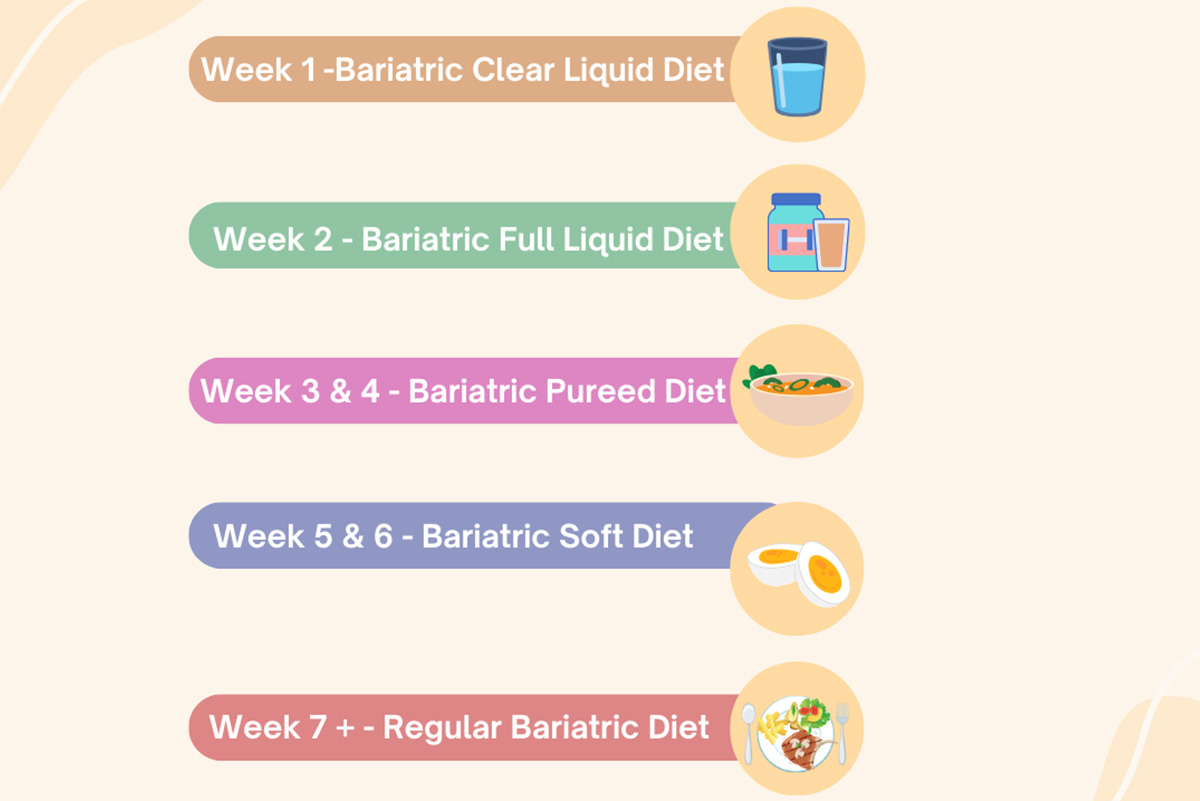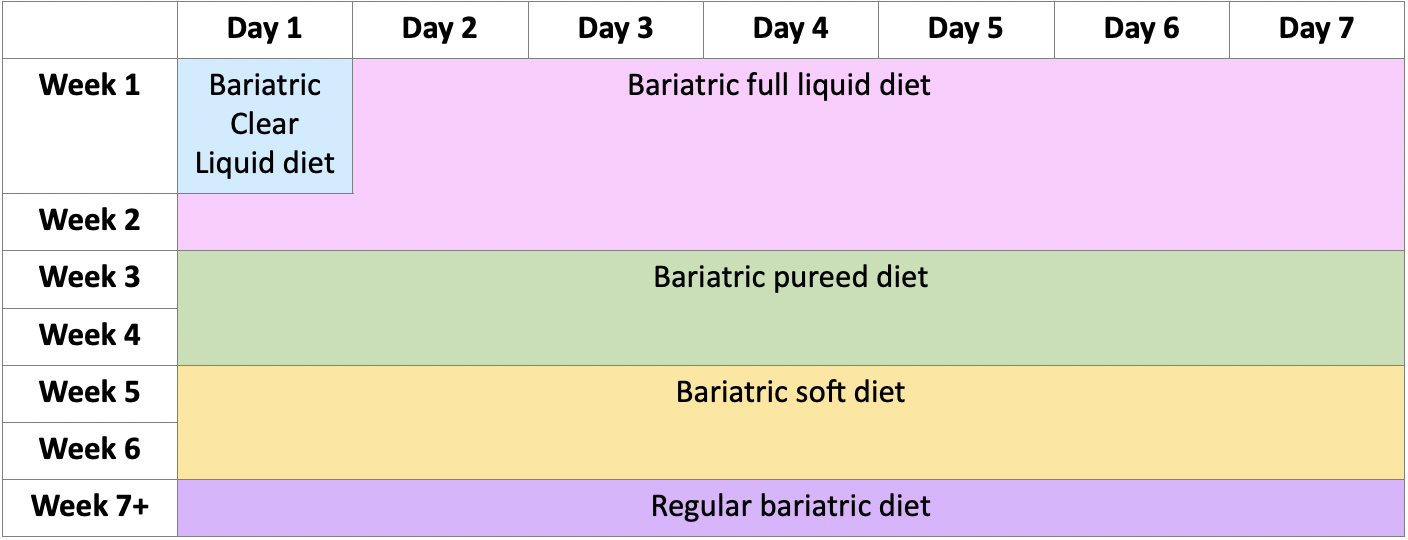What Is the Bariatric Surgery Diet?
July 9, 2023
By: Julie Richardson, MS, RD, LD, CNSC
Categories: Nutrition & Diet, Weight Loss
The bariatric surgery diet has several stages, each designed to support where you are in your healing.
You may have recently had your bariatric surgery or are just starting to think whether bariatric surgery is right for you, and you are wondering what you can eat after surgery. This is a common question and a concern for many patients undergoing bariatric surgery. Food is such an important part of who we are and how we socialize that making drastic changes to your diet can be scary. Don’t be afraid. Once you have progressed through to stage 5 of the bariatric surgery diet, there are a lot of things that you can eat.
The bariatric surgery diet has several stages, each designed to support where you are in your healing. The diet stages for each program may be slightly different, but should look something like this:
Typical Diet Advancement Plan

Stage 1: Bariatric Clear Liquid Diet
While you are in the hospital, for the first 24-48 hours after surgery, you will be on a bariatric clear liquid diet. This diet is designed to keep you hydrated without stressing out your stomach. At this time, you may be nauseous and fill up quickly. You will need to sip slowly on sugar-free, non-carbonated, caffeine-free clear liquids.
Stage 2: Bariatric Full Liquid Diet
Once you are discharged from the hospital or on day 2-3 after surgery, your diet should be advanced to a bariatric full liquid diet. You will usually remain on this diet until day 15 (week 3) after surgery. This diet is designed to keep you hydrated and start to provide more nutrition (protein) for healing. This diet stage focuses heavily on protein shakes and supplements.
Stage 3: Bariatric Pureed Diet
At this point, you can tolerate slightly larger portions and are ready to start eating a bariatric pureed diet. The food will need to be blended/pureed to the consistency of baby food. This will allow you to build up tolerance to solid food. You will need to continue to focus on protein and will probably need to continue with the protein supplements to help meet your protein needs. You will typically remain on this stage for weeks 3-4 after surgery.
Stage 4: Bariatric Soft Diet
Now that you can tolerate food, you can continue to advance textures to a bariatric soft diet. The food will need to be chopped, ground, mashed, flaked, or pureed. These foods will require less chewing, passing more easily through your gastric pouch. You will still need to focus on protein but can start relying more on food sources of protein than protein supplements. You will typically remain on this stage for weeks 5-6 after surgery.
Stage 5: Regular Bariatric Diet
At week 7, you are now ready to advance to regular textures and reintroduce a greater variety of food into your diet. This is the diet that you should follow for the rest of your life. You should continue to focus on protein and avoid high-fat or sugar-sweetened foods. Make sure that you eat slowly, listen to your body, and stop eating when you are full. Congratulations – you have made it through all the stages of the bariatric surgery diet!
Recommended Foods, Goals, and Tips for Each Stage of the Bariatric Surgery Diet
Each stage has its recommended foods, goals, and tips to help you avoid complications and reach your personal health and weight loss goals. They are summarized in the table below:
Bariatric Diet Stages Food, Goals, & Tips
| Bariatric Diet Stage | Recommended Foods | Goals | Tips |
|---|---|---|---|
| Stage 1: Bariatric Clear Liquid diet |
|
|
|
| Stage 2: Bariatric Full Liquid diet |
|
|
|
| Stage 3: Bariatric Pureed diet |
|
|
|
| Stage 4: Bariatric Soft Diet |
|
|
|
| Stage 5: Regular Bariatric diet |
|
|
|
St. Mary’s Hospital Can Help You Lose Weight
If you are interested in continuing your weight loss journey with the help of bariatric surgery, Athens General and Colorectal Surgeons and St. Mary’s Hospital in Athens can help. Please contact the AGCS office for more information at (706) 548-5488. We are here to help you every step of the way and wish you the best of luck on your journey!

Request a bariatric surgery application today.
Take the first step toward achieving weight loss through bariatric or weight loss surgery.
